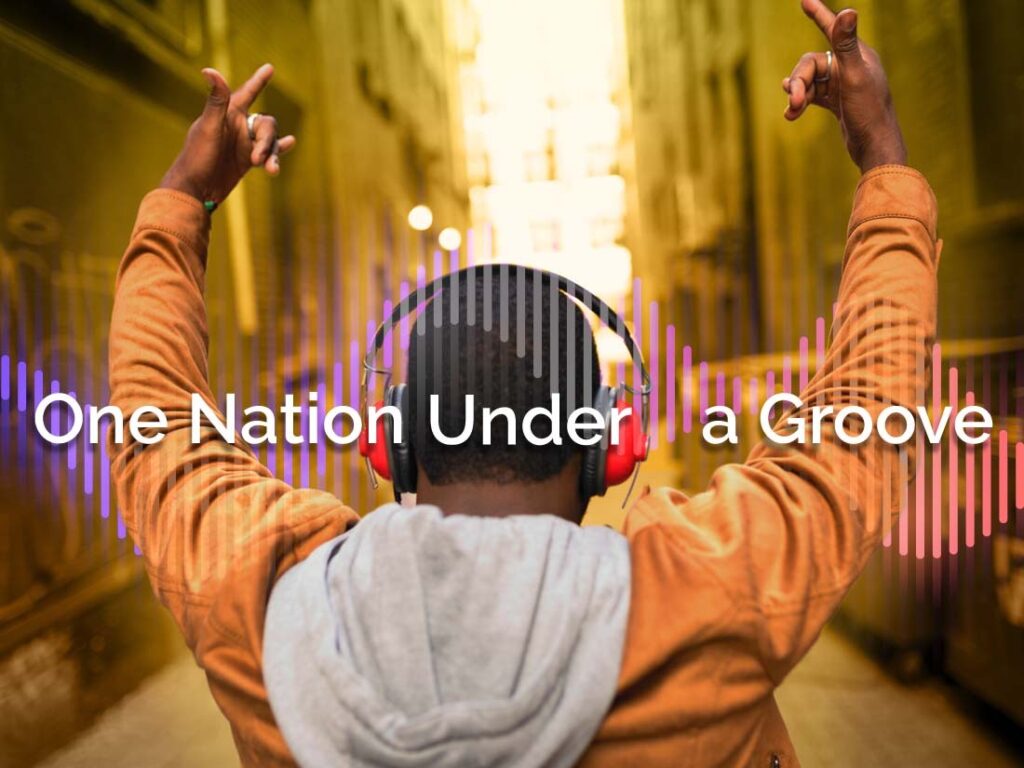For the New Black Wall Street this Black History Month, let’s focus on our contributions to the universal language of music and its financial impact. As the largest Black owned bank in the country, focusing on the financial impact is what we do! So, Spread the word!
It started with the beat of a drum. A beat that was strong and rich with history that was muffled at first but grew into a magnificent groove, now heard around the world. Through that beat we carried our joys and pains but also our triumphs. Yes, we told our stories…our history through spirituals in rhymes that could be easily remembered and passed on to future generations.
Our songs and music were powerful enough to become popular outside of the Black community, which created an opportunity for our music to become profitable. Combining lyrics with the rhythms of the beat created the first syncopated notes of Jazz.
By slowing the beat and addressing our personal troubles, Rhythm and Blues (R&B) was born. From the moving and popular R&B music, next came Rock n’ Roll. Then came Funk and Soul music of the 60’s and 70’s. Yes, we did that! Black music has been the soundtrack to our struggle and has amplified our voices in the fight for social justice.
You can see and hear it in the documentaries, the “Summer of Soul (…Or, When the Revolution Could Not Be Televised)” by Questlove, Oscar nominee for Best Original Documentary, and “The Black Power Mixtape 1967-1975.” If you haven’t watched these documentaries, we highly recommend them. It’s hard to deny the connection between Black music and protest music. You hear it through Sam Cooke singing “A Change Is Gonna Come”, when Marvin Gaye asked the world “What’s Going On” and so many others. And from Funk and Soul came the creation of Hip Hop and Rap.
Often – and unfortunately – Black culture is treated as an engine of profit that the Black community does not receive or recuperate.
For the purpose of this article, the difference between cultural appreciation and appropriation comes down to a universal rule… respect. Respect means giving credit where credit is due, and that includes a fair share of the profits.
During the heyday of rock in the ’60s and ’70s, the work of Black songwriters and musicians only made it to the mainstream when remade, released, and popularized by white artists. Often these works were changed – sometimes lyrically, sometimes in tempo and speed – to make them more “palatable” to white audiences. The original Black artists weren’t just skipped over for recognition; several of them barely made any money off of monumental bodies of work that charted No.1 and typified the era.
You’ve heard the quote, “Imitation is the sincerest form of flattery,” before, right? But do you know that’s not where the quote ends? The full Oscar Wilde quote goes, “Imitation is the sincerest form of flattery that mediocrity can pay to greatness.”
Musical genres – originated by Black Americans – have not only become popularized and mainstream in America, but have spread all across the world. You can hear the influence of Black American music in the countercultural pulse of rap music fusions across the globe. You can hear African drums in Reggaeton and call-and-response in Cumbia. R&B and Hip Hop are largely responsible for being the base of many K-pop artists’ music as well. Truly, Black American music is global music.
Although the words may be different, Black American music can be heard all over the planet. The language is diverse, but the message is the same – a joyful, rhythmic sound that brings us all together.
Join us in the celebration of Black music and continue to fight to ensure Black songwriters and performers receive their fair share of the profits.


















